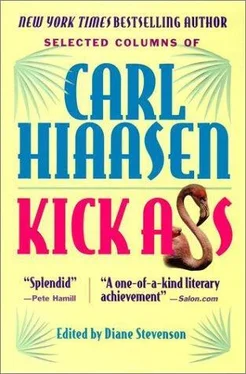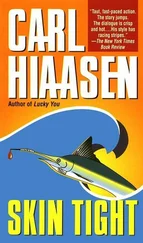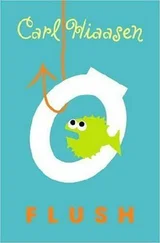Buffett doesn't think this is a suitable location for a thousand condominiums or apartments. "Affordable housing," the developer calls it. "Monstrosity" is the term preferred by critics. The Key West City Commission meets Tuesday to discuss the plan. Tonight Buffett will sing at a "Save the Salt Ponds" rally at a restaurant on Duval Street.
This is not the best of news for the developer; Buffett is a popular fellow with a huge following here. The singer already has angered Larry Marks by suggesting that one of Marks' other big condo projects should be used as a bombing target by the Navy.
Though he usually avoids Key West politics like a tropical plague, Buffett says the Salt Ponds are too important to ignore. "We've got enough condos. I mean, how many people can live on this island?"
The strategy to save the Salt Ponds doesn't include another prolonged legal slugfest with Larry Marks—except as a last resort. The new plan is to get the state of Florida to purchase the wetlands outright. There are many who think that Marks would be willing to sell his portion, for the right price. Both the City Commission and the Florida Audubon Society say it's a good idea, and last week the state took the first step toward placing the Salt Ponds on its list of lands to be acquired for preservation.
The problems are time and money: It might take years before the fluids are available. In the meantime, the bulldozers could roll.
Because the Salt Ponds are so remote—a verdant pocket near the airport's runway, far from the Conch Train's view—most tourists and many Key Westers have never visited the beautiful tidal marsh. Buffett says it can't be saved until people know what they're saving.
"It's the same ploy we used with the manatees," he says. "Nobody knew what manatees were, seven years ago."
Buffett's importance in a local controversy like this is inestimable. No other personality is so instantly identified with Key West; no one has done more to popularize the island's charms. If anyone can mobilize Margaritaville, it is he. High-rises have no place in Buffett's lyrical view of paradise.
"If you want to make it look like Fort Lauderdale," he says, "then, hell, go live in Fort Lauderdale."
Still, it's one thing to pick up a guitar and quite another to stalk into City Hall and make a speech. "I promised my grandfather that I would never get into politics," he says with a groan.
With enough attention, the Salt Ponds can be saved. All it takes is money. The 407 acres are divided among more than two dozen landholders, all of whom deserve compensation. Exactly how much compensation will be a matter of some dispute.
The crucial thing is for the city to keep the ponds just as they are until negotiations begin. Buffett, who knows the Keys too well, has a good idea: "They should have Vanna White come down and all the developers gather around the Wheel of Fortune—and we'll all play."
If only it were that easy.
Feds must save wetlands from development
November 19, 1986
The destruction of West Dade's wetlands has been momentarily slowed by a bunch of pesky federal bureaucrats who seem to think water quality is more important than new strip malls and townhouses.
At issue is the fate of the Bird Road Everglades Basin, a dozen square miles of marsh along Krome Avenue west of Kendall.
For a long time developers have been slobbering over the prospect of invading and paving this preserve—a notion recently endorsed by county commissioners, who once again have rolled over compliantly at the whiff of money.
This time the money came in hefty election-time checks from developers, their attorneys and members of the Latin Builders Association—those who most eagerly want to bulldoze the wetlands.
To no one's surprise, the landowner's attorney insists that West Dade's Glades aren't worth saving because the land has little environmental value. That this unsupported assertion contradicts the view of virtually every expert public agency doesn't seem to matter to the county commission, which never lets facts get in the way of a favor.
The Bird Road basin and surrounding wetlands feed the Biscayne Aquifer, which filters and supplies our drinking water. Originally the area was closed to development under the county's master plan. Last summer, heavily lobbied by building interests, the commission voted to open several tracts.
Leading the charge was Commissioner Jorge Valdes, who's never met a developer he didn't like. The developers like him, too. Building interests contributed heavily to Valdes' $471,000 re-election campaign this year.
In an inspired, if not transparent, bit of strategy, the commissioner lobbied to build a new high school in the Everglades basin.
It's one thing to indignantly fight the construction of a shopping center, or a high-rise, or a tacky warehouse—but a school? A school is for children. A school is patriotic. Who could argue that we don't need new schools?
No one, certainly. The question is: Of 95 possible sites for the high school, why was the Bird Road Everglades Basin chosen?
The answer is easy—to open up the protected wetlands. You can't have a school in the middle of a marsh. Think of the mosquitoes. Think of the snakes. Think of all that green space just sitting there, not making money.
No, once you have a school, you need a neighborhood to go with it. And you can't very well have a neighborhood without houses and apartments and gas stations and burger joints. This is the history of growth in South Florida.
Proposing a new high school is just a ruse to unlock new territory. It also gives Mayor Steve Clark and other county commissioners something respectable to hide behind when explaining their votes. What's harder to explain is why they ignored the advice of their own environmental staff, and waived all the usual requirements for the new school site.
Luckily, the future of the Glades does not ultimately rest with politicians who obediently kiss the rings of big-time zoning lawyers. It rests with federal officials who take a broader and less predatory view of Florida's withering resources.
The Environmental Protection Agency says the Bird Road basin is a lousy site for a new school. The U.S. Fish and Wildlife Service agrees. So does the National Marine Fisheries Service. They say that the basin, while not pristine, is important enough not to be disturbed.
The issue has gone to the U.S. Army Corps of Engineers, which can kill the project outright, or demand an environmental study that might take years to complete.
As you might suspect, a thorough scientific survey is the last thing county administrators want to see. They've asked the Corps to please just skip all the environmental stuff and approve the new school as fast as possible.
And, just to be sure its letter made sense, the county cleverly let the landowner's lawyer write it.
Ill-conceived landfill plan begets smoke
April 6, 1990
In North Dade, the Munisport landfill is burning, and has been for weeks.
The city of North Miami can't put the fire out because it doesn't have a fire department. Dade County, which has the trucks, apparently doesn't do underground fires.
The adjacent city of North Miami Beach, which is getting smoked out, is now considering a lawsuit to force somebody to extinguish the blaze. It doesn't seem like too much to ask, but this is Munisport, where nothing is simple.
To begin with, it wasn't supposed to be a dump.
Twenty years ago North Miami bought a 350-acre tract from the county with the promise that the land would be used for public recreation. The purchase was financed with a $12 million bond issue, which the taxpayers of North Miami are still paying off.
The original plan called for a swimming pool, tennis courts and two municipal golf courses—rolling emerald hills. Trouble was, no natural hills could be found. So North Miami agreed to allow the developer, Munisport Inc., to dump so-called "clean" fill to raise the elevation to a level suitable for golfers.
Читать дальше









